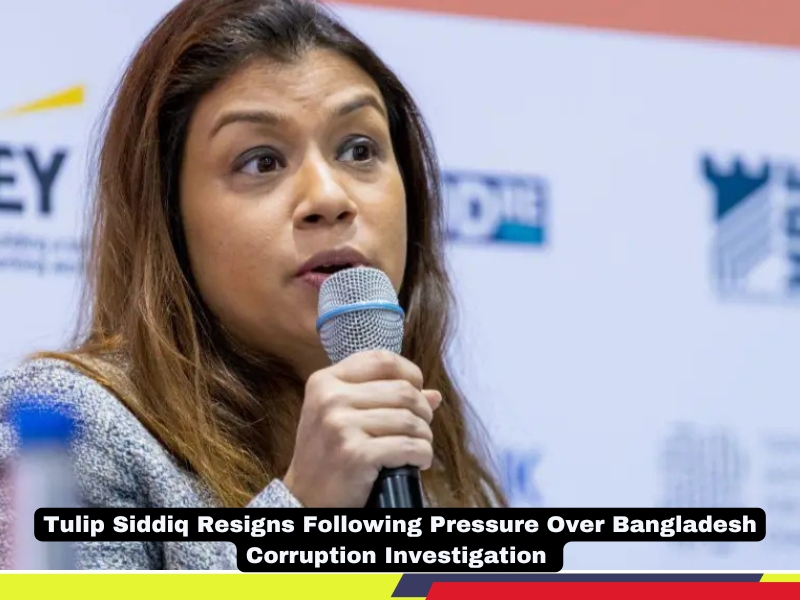Tulip Siddiq, the treasury minister tasked with tackling corruption in UK financial markets, has stepped down from her role following intense scrutiny over her connections to an anti-corruption investigation in Bangladesh. The Labour MP for Hampstead and Highgate referred herself to Prime Minister Keir Starmer’s standards adviser, Sir Laurie Magnus, who concluded there was no evidence of impropriety but criticized Siddiq for failing to recognize the reputational risks associated with her familial ties.
Allegations and Investigations
The controversy stems from Siddiq’s connection to her aunt, Sheikh Hasina, the former prime minister of Bangladesh and head of the Awami League. Hasina fled the country after being ousted from power amid accusations of embezzling £3.9 billion in infrastructure funds. Siddiq was named in an investigation last month concerning these allegations, which also implicated her in the ownership of properties in London tied to Hasina’s allies.
One such property, a flat in King’s Cross, became a focal point of the scandal. Siddiq initially claimed the flat had been purchased by her parents, but later issued a correction, acknowledging it had been gifted to her by a property developer connected to her aunt’s government.
Standards Adviser’s Findings
Sir Laurie Magnus, who investigated the matter over eight days, concluded that while there was no evidence of impropriety, Siddiq’s lack of awareness regarding the origins of the property raised questions about her judgment. “The public was inadvertently misled,” he noted, though he attributed the situation to an “unfortunate misunderstanding.”
Sir Laurie also highlighted the absence of comprehensive records and the passage of time as obstacles to fully resolving the matter. However, he stated there was no evidence of unusual financial arrangements involving Siddiq, her husband, or the Awami League in connection to the London properties.
Resignation and Political Fallout
Siddiq announced her resignation, stating that her continued presence in the government would be a distraction, though she maintained her innocence. “I have done nothing wrong,” she insisted, adding that her decision was in the best interest of the government.
In accepting her resignation, Keir Starmer expressed sadness and left the “door open” for Siddiq’s return to public service. However, the resignation has fueled criticism from the opposition. Conservative leader Kemi Badenoch accused Starmer of “dithering and delaying” in addressing the controversy.
Broader Implications
Siddiq’s resignation comes amid increasing scrutiny of financial corruption and its links to political figures. As economic secretary to the Treasury, she was responsible for ensuring integrity in the UK’s financial markets—a role that has now been overshadowed by questions about her own connections.
This high-profile resignation underscores the challenges faced by political leaders in maintaining public trust and the importance of transparency in addressing allegations of impropriety, even when no wrongdoing is ultimately found.
As investigations in Bangladesh and the UK continue, the political fallout from Siddiq’s departure is likely to resonate both domestically and internationally.




